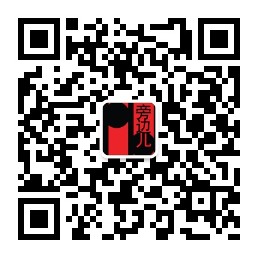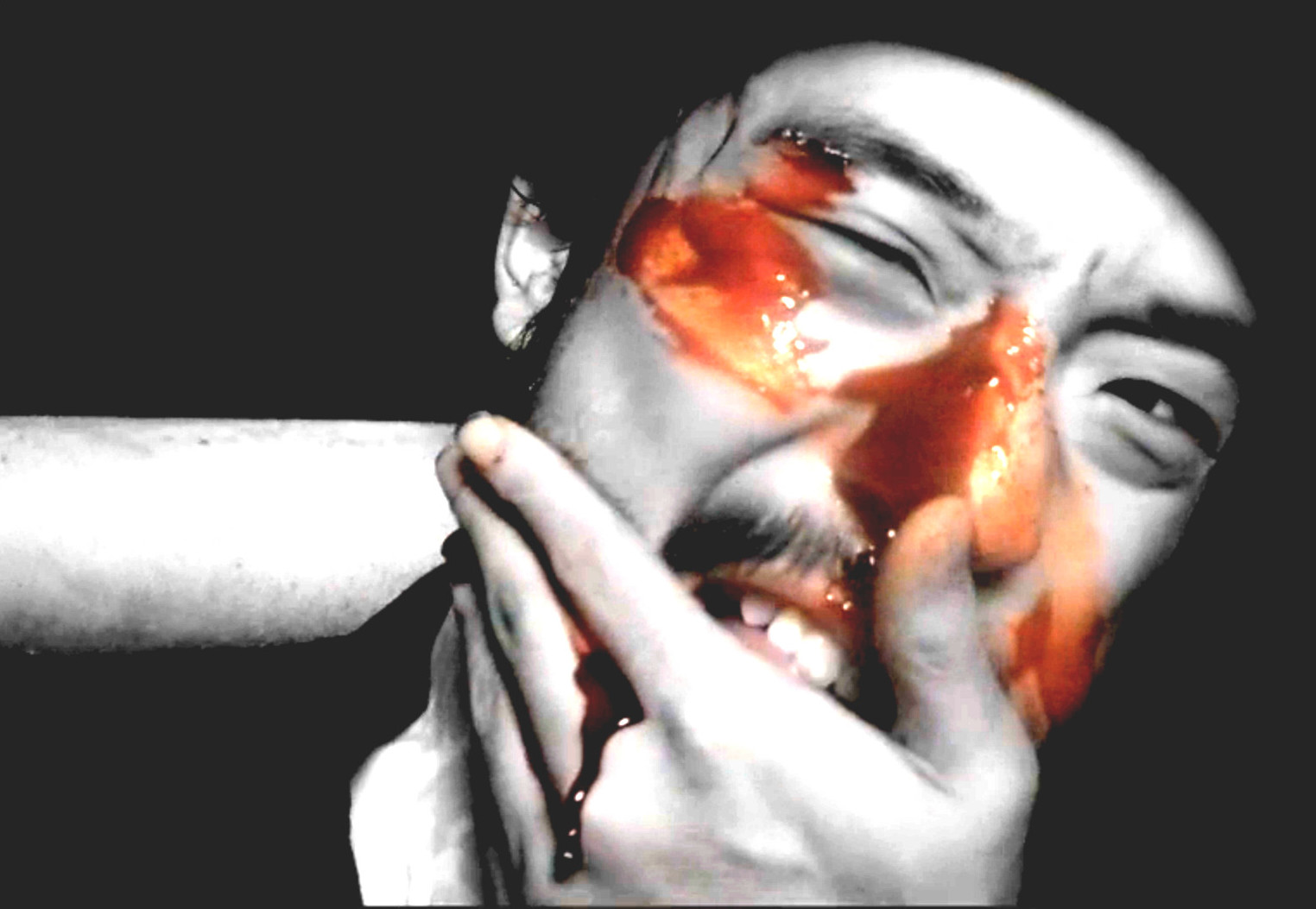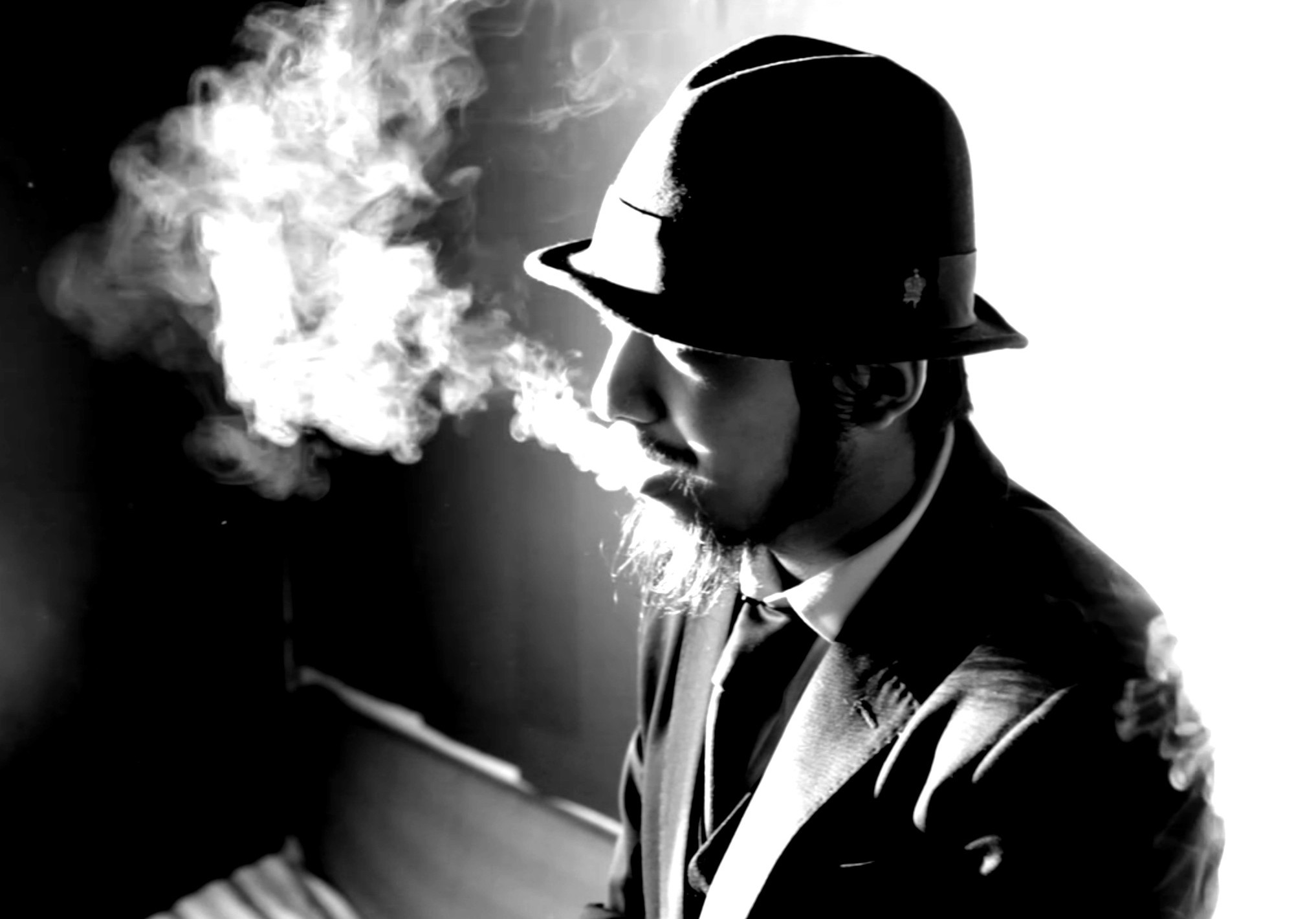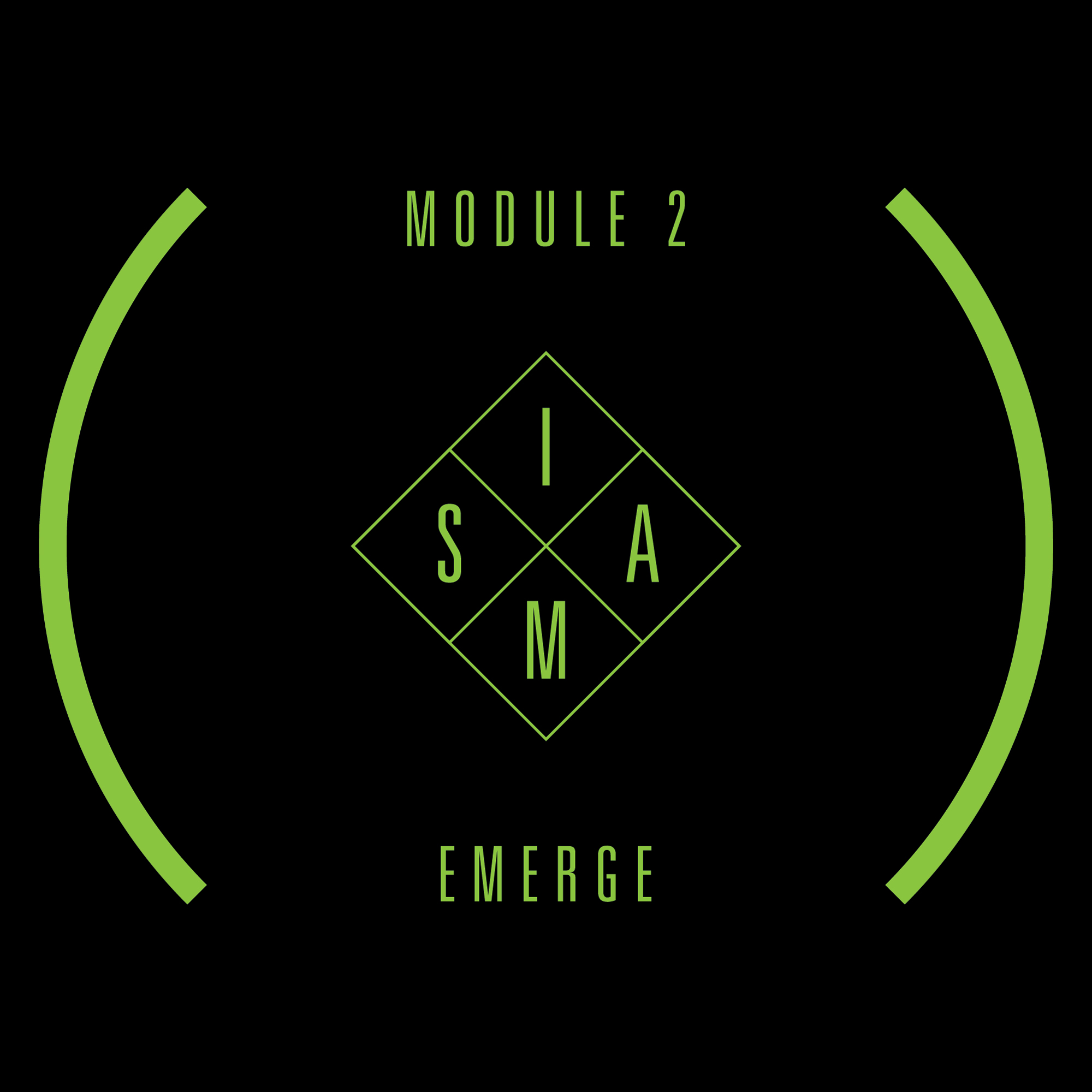Yan Jun: “Noise and the Apocalypse”
By Josh, 2011年 5月 6日
《 看中文 》
The following article by Yan Jun was translated by British artist and musician Dominik Salter Dvorak. While you read you can stream “哥伦布寺 (Temple of Columbus)”, a recording made during Yan Jun’s Spring 2011 US residency. Yan Jun notes about the recording:
note: 1, live recording. april 4th at “it looks it’s open”, columbus, usa; 2, recording via mixer. it’s totally different to which audience heard during the concert according to the specific space and sound system; 3, pls use proper speaker or headphone to listen to the details.
You can find a Chinese version of the article on Yan Jun’s blog.

Yan Jun live at Zoo, Oakland (photo by Randy H.Y. Yau)
Yan Jun – “哥伦布寺 (Temple of Columbus)”
Noise and the Apocalypse
author: Yan Jun1
translation: Dominik Salter Dvorak
Everyone’s talking about 2012.
Polar reversal, darkness, earthquakes, tsunamis. The sun turns hostile, computers crash. The weak will perish, those left will die in turn. The remaining few will pass into another world, in the sky, a mythical heaven. No more worries of daily bread, success in life, no sex drive.
What I think: You wish.
Who the fuck wants to live? Then kill yourself!
But you won’t. No-one wants to die, nor do they want to live. They hang on, grumble, fantasize, privately hope for a revolution, though don’t really count on being included in it. And even these thoughts are wasted. Why make the effort? We’re all equal in this disaster, there’s no-one responsible.2
So you can’t kill yourself anyway: you’re dead already.
Throughout history many people have resented reality. But now that history seems is reaching its climax, there’s no need to fight against it. We’ll be wiped out in a stroke. An apocalypse has become the best reason for us to compromise3 reality.
This is how I see it: the apocalypse will come, and all those who believe in the other shore will reach it. And the rest of us will stay here. Because this place is hell. How could hell possibly be somewhere else? In some other reality?
I was coming back from Japan that day, it was mid Autumn festival. Speaking on the phone, Cousin4 said: welcome back to hell. I know what he said was true, he’d just been hurt. In this place, we all get hurt. Hurting each other is what we do best. We met 10 days later at an unlicensed music venue in the suburbs. The name of the show was ‘Hate Noise.’ I chose it.5 “We don’t actually hate noise, neither do we love it. We live in noise, noise lives within us, both simultaneously. In K’s words, all things, living or dead, are merely vibrations. Though, we could also think of it as noise about hatred, seeing as everyone is constantly discussing love, peace, serene thoughts, a beautiful, perfect, civilised society.”
That day, K and another audience member started arguing. K swore: fuck you. The audience member, a young guy all in black, with black rimmed glasses6, replied: fuck you. I spoke to him for a while. He was hurt, but wouldn’t admit it. On that day we also screened an unfinished documentary about K. It was called ‘Fuck You’.
Many people dislike both totalitarianism and capitalism, but have no idea what to do about it. They read books, listen to music, watch films, go to art openings. They work in the creative industry, discuss art and democracy, distance themselves from a life of mediocrity. They’re friends have all married, bought houses and cars, but not parking spaces because they’re too expensive. They have pets and their friends have children.
I often meet a certain kind of young person, and ask them what music they like. They answer, folk songs and noise.
I have an old friend, 10 years ago we were both radicals. We stood together with all the rebels. Sometimes we slept together.7 Now he likes folk songs. Before he resigned, his colleagues also liked folk songs. His colleagues were China’s earliest paparazzo, and China’s first journalists to fight for democracy.
He once helped release a CD about low carbon emission. Apart from the folk songs, he also invited me to contribute. He found someone to edit my piece, as far as I knew*, it came back in one piece. Ten minutes of the sound of chewing sunflower seeds, I’d chewed them in his office. I listened to the recording over and over to make sure it could be played endlessly.
He tried to cut it down to 4 minutes 33 seconds. When we met he was very embarrassed. I had to hurt him. We’d always been friends, and will remain so. When the apocalypse, is happening right in front of us, I don’t want to see him die wretchedly.
To speak of 4 minutes 33 seconds is to speak of silence, but silence doesn’t exist. In hell we only hear noise: deafening, faint, cutting as logic, soft as a cat. But to not hear these sounds is not to hear silence. Most people just prefer not to hear. After all, hell is intolerable.
The West is bored of its civilisation, it yearns for change. Chinese people are changing every day, they yearn for real change. But the apocalypse won’t come in the way you think it will. Like a murderer freed from sin. A widow shedding her burden. A bourgeois sacrificing his dreams. A Tibetan, reincarnated.8 A celebrity, gazing at herself, jumps from the top of a building. A chronic hepatitis sufferer dreaming of a new life..
In hell, nothing is ever over. Nor are we very kind hearted. The majority of contemporary society are neither dead nor alive. Folk songs promised them another kind of society.
And there’s the Guqin. How should I treat those people who pretend to be characters from antiquity? They come to my concerts, and say to me, ‘I hope there comes a day when the government will support this genuine, pure, art, like they do in the West.’ One of them, listening to the Guqin, sits cross legged, eyes closed, her hands folded together. The last real folk singer I knew, a true vagabond, vanished over a year ago. He wore 20 year old jeans, his hair was dirty and unkempt; whenever I saw him he’d go on about how he was quitting drinking. But now society beckons him. His brothers, his old friends play more often, are becoming better known. This is an era where he might have been able to sustain himself. But he was in too much pain to face society, he was incompatible. In an apocalypse, he becomes a thorn in our flesh, sandpaper against our skin, sunflower seed shell in our teeth. When a totalitarian and capitalist world elevates its9 spiritual life, he becomes a burst of noise, breaking the silence.
/// footnotes ///
1. This article was written during Autumn 2010, and was first published by the Taiwanese magazine 今艺术 (ArtCo), for whom Yan Jun writes a monthly column.
^^back to text^^
2. ••••••: yeh
so it’s finish it “at ease”, no responsibility
••: but the de of what
••••••: de nothing
TURTLES
^^back to text^^
3. ••: or can it be an excuse
yeh i tried that
but it sounded shit
••••••: could be, but that could be 借口in chinese.
^^back to text^^
4. ••••••: k
表哥=cousin
••: real cousin?
••••••: yep
••: hao
i thoght it might be gemenr
••••••: hahah
^^back to text^^
5. 我起的 I was the first on
我起的= i named it
referring to ‘hate noise’
••: oohohohhoh
••••••: 世间万物都不过是振动
••: 我猜了
^^back to text^^
6. ••••••: 黑框眼睛
http://img.blog.163.com/photo/oVPrVTcGY3ee_QWsVkdVSQ==/4246050023681029206.jpg
K said*, fuck You 。 “said” is okay i think
^^back to text^^
7. ••••••: yeh sweet
••: i dont like radicals/traitors together
but what about
^^back to text^^
8. ••: 哦
••••••: god
i can never be a chinese teacher
••: taoyan
^^back to text^^
9. ••: i got confused which he’s referring to
••••••: the world
^^back to text^^







Great translation.